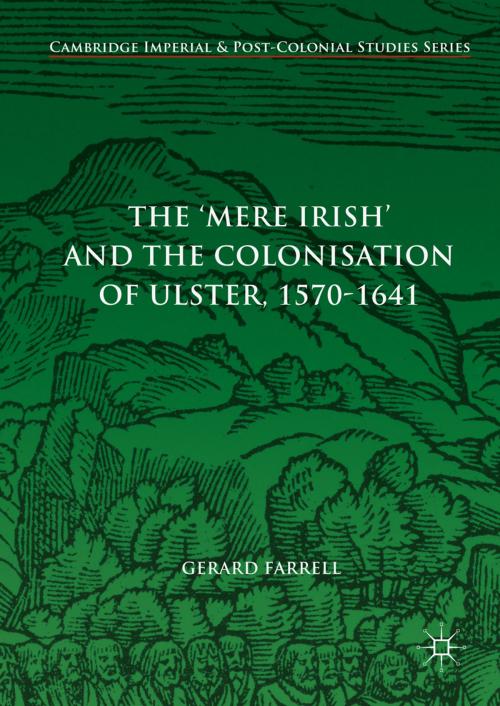The 'Mere Irish' and the Colonisation of Ulster, 1570-1641
Nonfiction, History, British, Americas, United States| Author: | Gerard Farrell | ISBN: | 9783319593630 |
| Publisher: | Springer International Publishing | Publication: | October 10, 2017 |
| Imprint: | Palgrave Macmillan | Language: | English |
| Author: | Gerard Farrell |
| ISBN: | 9783319593630 |
| Publisher: | Springer International Publishing |
| Publication: | October 10, 2017 |
| Imprint: | Palgrave Macmillan |
| Language: | English |
This book examines the native Irish experience of conquest and colonisation in Ulster in the first decades of the seventeenth century. Central to this argument is that the Ulster plantation bears more comparisons to European expansion throughout the Atlantic than (as some historians have argued) the early-modern state’s consolidation of control over its peripheral territories. Farrell also demonstrates that plantation Ulster did not see any significant attempt to transform the Irish culturally or economically in these years, notwithstanding the rhetoric of a ‘civilising mission’. Challenging recent scholarship on the integrative aspects of plantation society, he argues that this emphasis obscures the antagonism which characterised relations between native and newcomer until the eve of the 1641 rising. This book is of interest not only to students of early-modern Ireland but is also a valuable contribution to the burgeoning field of Atlantic history and indeed colonial studies in general.
This book examines the native Irish experience of conquest and colonisation in Ulster in the first decades of the seventeenth century. Central to this argument is that the Ulster plantation bears more comparisons to European expansion throughout the Atlantic than (as some historians have argued) the early-modern state’s consolidation of control over its peripheral territories. Farrell also demonstrates that plantation Ulster did not see any significant attempt to transform the Irish culturally or economically in these years, notwithstanding the rhetoric of a ‘civilising mission’. Challenging recent scholarship on the integrative aspects of plantation society, he argues that this emphasis obscures the antagonism which characterised relations between native and newcomer until the eve of the 1641 rising. This book is of interest not only to students of early-modern Ireland but is also a valuable contribution to the burgeoning field of Atlantic history and indeed colonial studies in general.















